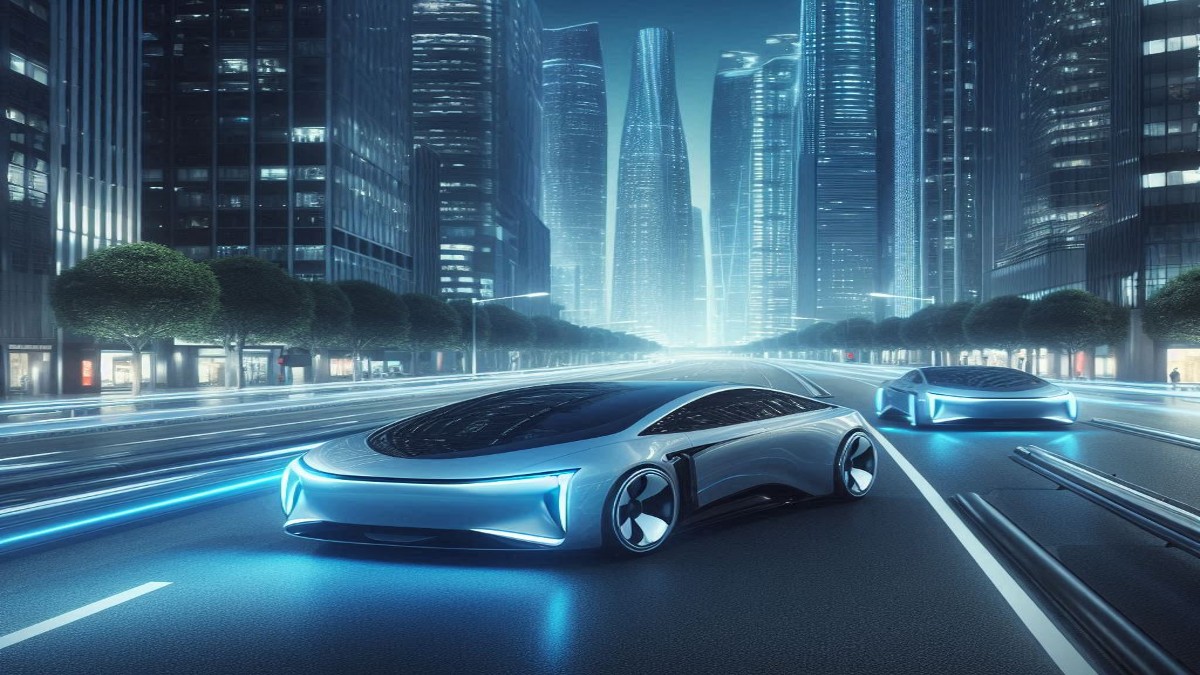
Hydrogen Fuel Cell Cars
Introduction
Hydrogen fuel cell cars represent a promising solution to the global quest for sustainable and environmentally friendly transportation. Unlike traditional internal combustion engines or even battery electric vehicles, hydrogen fuel cells produce zero tailpipe emissions, emitting only water vapor.
This article delves into the technology behind hydrogen fuel cell cars, their benefits, current challenges, and future potential in the automotive industry.
What is a Hydrogen Fuel Cell Car?
A hydrogen fuel cell car is an electric vehicle that uses a fuel cell to generate electricity through a chemical reaction between hydrogen and oxygen. This electricity powers the car’s electric motor, providing propulsion. Unlike conventional battery electric vehicles that store energy in batteries, fuel cell vehicles generate electricity on-demand, offering a unique approach to sustainable transportation.
How Hydrogen Fuel Cells Work
- Hydrogen Storage: Hydrogen gas is stored in high-pressure tanks within the vehicle.
- Fuel Cell Stack: The core of the hydrogen fuel cell system where the chemical reaction occurs. It consists of multiple fuel cells stacked together to increase power output.
- Chemical Reaction: Inside the fuel cell, hydrogen gas passes through an anode where it splits into protons and electrons. The protons pass through a membrane to the cathode, while the electrons travel through an external circuit, generating an electric current.
- Electric Motor: The electricity generated powers the electric motor, which drives the vehicle.
- Exhaust: The byproduct of this reaction is water vapor, which is expelled through the tailpipe.
Advantages of Hydrogen Fuel Cell Cars
1. Zero Emissions
- Hydrogen fuel cell cars produce no harmful emissions, only water vapor, making them environmentally friendly and contributing to improved air quality.
2. High Efficiency
- Fuel cells are more efficient than internal combustion engines, converting chemical energy directly into electrical energy with higher efficiency rates.
3. Quick Refueling
- Hydrogen fuel cell vehicles can be refueled in a matter of minutes, comparable to gasoline vehicles, unlike battery electric vehicles that require longer charging times.
4. Longer Range
- Hydrogen fuel cell vehicles typically offer longer driving ranges compared to battery electric vehicles, making them suitable for long-distance travel.
5. Energy Security
- Hydrogen can be produced from a variety of sources, including water, natural gas, and renewable energy, enhancing energy security and reducing dependency on fossil fuels.
Current Hydrogen Fuel Cell Vehicles on the Market
1. Toyota Mirai
- The Toyota Mirai is one of the most well-known hydrogen fuel cell cars. It features a sleek design, advanced technology, and a range of approximately 402 miles on a full tank of hydrogen.
2. Hyundai Nexo
- The Hyundai Nexo offers a range of up to 380 miles and comes equipped with a suite of advanced safety and driver-assistance features, making it a competitive option in the hydrogen vehicle market.
3. Honda Clarity Fuel Cell
- The Honda Clarity Fuel Cell combines spacious interiors with a range of around 360 miles, offering a practical and efficient alternative for eco-conscious drivers.
Challenges Facing Hydrogen Fuel Cell Cars
1. Infrastructure Development
- The lack of widespread hydrogen refueling infrastructure is one of the biggest challenges. Building hydrogen refueling stations requires significant investment and coordination.
2. Hydrogen Production and Distribution
- Producing hydrogen in an environmentally friendly manner and distributing it efficiently are complex tasks. Most hydrogen is currently produced from natural gas, which involves carbon emissions.
3. Cost
- Hydrogen fuel cell technology is still relatively expensive due to the cost of materials and production processes. Economies of scale are needed to bring down prices.
4. Public Perception
- Hydrogen fuel cell cars are less known to the general public compared to battery electric vehicles. Raising awareness and educating consumers about the benefits is crucial.
The Future of Hydrogen Fuel Cell Cars
1. Technological Advancements
- Ongoing research and development are focused on improving fuel cell efficiency, reducing costs, and enhancing hydrogen production methods. Breakthroughs in these areas could significantly boost the adoption of hydrogen fuel cell vehicles.
2. Government Policies and Incentives
- Supportive government policies and incentives can accelerate the growth of hydrogen fuel cell infrastructure and adoption. Countries like Japan, South Korea, and Germany are already investing heavily in hydrogen technology.
3. Collaboration and Partnerships
- Collaborations between automakers, energy companies, and governments are essential to overcoming the challenges facing hydrogen fuel cell cars. Joint ventures and partnerships can drive innovation and infrastructure development.
4. Integration with Renewable Energy
- Hydrogen production through renewable energy sources like wind and solar power offers a sustainable and green pathway. Electrolysis, which uses electricity to split water into hydrogen and oxygen, is a promising method that can be powered by renewable energy.
Case Study: Japan’s Hydrogen Society
Japan is a leading advocate for hydrogen technology and aims to become a “hydrogen society.” The country has set ambitious targets for hydrogen production and infrastructure, promoting the use of hydrogen in various sectors, including transportation, industry, and energy storage. Initiatives like the Tokyo 2020 Olympics, where hydrogen-powered vehicles were showcased, highlight Japan’s commitment to hydrogen technology.
Conclusion
Hydrogen fuel cell cars hold great promise for the future of clean transportation. Their potential to offer zero-emission driving, high efficiency, and quick refueling times makes them a viable alternative to both internal combustion engine vehicles and battery electric vehicles. However, significant challenges remain, particularly in infrastructure development, cost reduction, and public awareness. With continued advancements in technology, supportive policies, and collaborative efforts, hydrogen fuel cell cars could play a crucial role in achieving a sustainable and environmentally friendly transportation system.
References and Further Reading
- “Hydrogen Fuel Cells: The Future of Electric Vehicles” – Journal of Clean Energy Technology.
- “Hydrogen as a Future Fuel” – International Journal of Hydrogen Energy.
- “The Rise of Hydrogen Fuel Cell Vehicles” – Automotive Engineering Magazine.
- Official websites of Toyota, Hyundai, and Honda for detailed information on their hydrogen fuel cell models.






